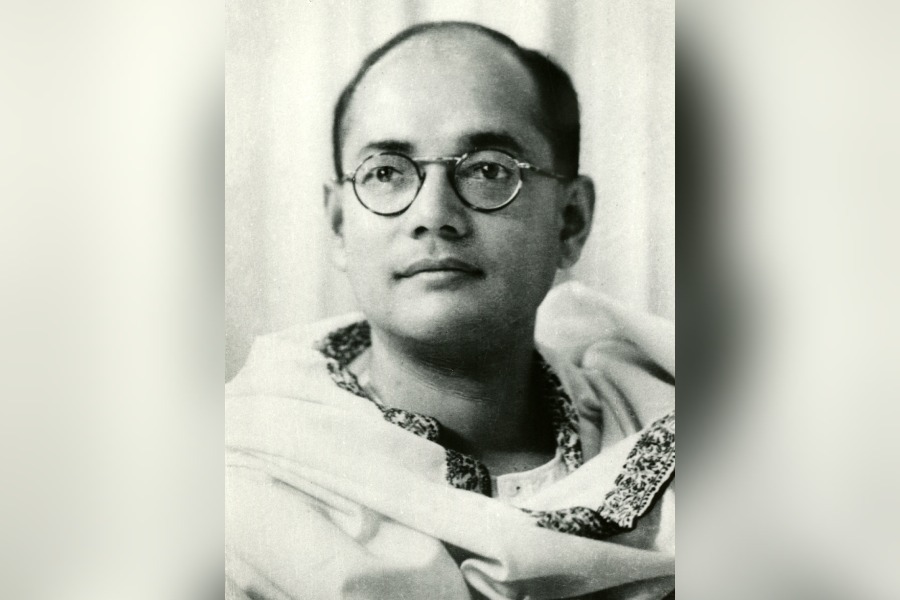Undoubtedly, 2020 is the year of the coronavirus and its officially accepted intent of annihilating the human species. It is also the year after scientists formally announced the decisive commencement of the Anthropocene, the annihilation of Nature by human beings. There are other subplots in the complex main plot of these two terminal wars. These include the war between the ultra-right and the democrats in so many countries; the war over the idea of citizens as settled ones against the notion inclusive of nomads and the migratory population; war between theocratic ideas of State and the secular ideas related to it. There are many other subplots revolving around gender, class, identity, language and history. It would be a great challenge for any future historian to provide a full depiction of 2020; so much is happening to all of us and all around us. Since the present moment is so overburdened by the history it is generating, it will not be unnatural if it finds no time to recall the past. Memory ‘recollected’ often tends to be disruptive of the plot of narratives being constructed in the present, and memory ‘brushed aside’ can bring in the question of the authenticity of such narratives.
The world may not find time to recall that it is exactly 75 years since the Allies had a conclusive win in World War II, and that 75 years ago, on April 30, Adolf Hitler ended his life. We are too busy in our affairs to remember that when Peter Coombs liberated the inmates of the Bergen-Belsen concentration camp, he found that the Jews and other prisoners inside were struck by a great typhoid epidemic. He reported that every day at least 300 died of the epidemic in the camp, and found more than 10,000 corpses lying inside it. The soldiers who buried the bodies did not even have the protective use of gloves. That was 75 years ago, to the exact day, when the three weeks locking up of India comes to a technical halt.
Worth remembering, too, are a couple of literary works, not because they may otherwise be forgotten but more because we may otherwise forget where we are in our time. One of them was by the French novelist and thinker, Albert Camus. Published in Paris by Gallimard as La Peste in 1947, and in Stuart Gilbert’s English translation as The Plague in 1948, the slim novel took the world by storm. The young Camus had been working on it since he was 29 and had plans of writing a novel in order to ‘redeem the plague’. The readers of his time and the successive generations of readers immediately recognized that the plague Camus was writing about was that of fascism, although he used the long history of epidemics afflicting his own Algeria. Its less spectacular success was seen in the Nobel Prize in 1957 given to the 44-year-old Camus, and its far more striking success was that several generations of young persons on earth, trapped in their own variety of existential crisis, invariably turned to it for their philosophical sustenance. The protagonist of The Plague, Bernard Rieux, of the city of Oran struck by the plague, made immortal the Existentialist stand, ‘to do where I am, what I can’. No escape, please, just continue to fight, Camus wanted to say to his readers as the stench of Bergen-Belsen would have overwhelmed Europe 75 years ago.
The other book that harkens me is Eric Blair’s political parable. He was, although only slightly, our own Biharibabu. Born in Motihari, Bihar, to an English father and French-Burmese mother, Blair was moved to England for his education. Having somehow crossed schooling, at 19, he chose to join the Indian Imperial Police Service and sought posting in Burma. He would have probably continued in the IIPS had it not been for his failing health that made him leave British India and settle for a career as a journalist and a writer using the pseudonym, George Orwell. It stuck forever not only to him but to the world’s literary history as well. Orwell’s Animal Farm was published in 1945, 75 years ago. The French translation of the book appeared in 1947, the same year as Camus’s The Plague did. If Camus’s subject was fascism in Western Europe, Orwell’s was totalitarian communism in the USSR. He deliberately chose the subtitle, Union des Républiques Socialistes Animales, which, in its abbreviation, URSA, is the Latin word for ‘bear’, the cultural symbol of Russia. In fact, he wrote to Arthur Koestler, who shared with Orwell the utter dislike for attacks on decency and human dignity in any coercive State, that the publication of the French translation was being delayed due to ‘political reasons’. Orwell was born in 1903 and lived till 1950. Camus was born 10 years later, in 1913, and lived for exactly a decade after Orwell was gone. A temporal coincidence, nothing more! What is not a coincidence is that between the two of them they offered a complete method of fighting fascism and any totalitarian regime. Camus provided the world the philosophical basis for resistance, powerfully presented in his The Myth of Sisyphus (1942). Orwell provided us the vocabulary to rip open totalizing regimes: ‘Big Brother’, ‘Thought Police’, ‘Thought Crime’, ‘the Ministry of Happiness’, ‘Memory Hole’, ‘Double Think’ and ‘Newspeak’ are all his coinages, by now well settled in the English language.
This spring, as the world and our own country are experiencing the epidemic, now certified as ‘pandemic’, this year, the 75th year since the most brilliant forensic analysis of politics was offered by literature, the world is under the cloud of democratically sanctioned dictatorships in country after country. This spring, probably we shall not have the time to recall that just three quarters of a century ago, the world had seen it all. In our world of 2020, as we groan under the epidemic of thought viruses and violence erupting out of the large-scale contamination it has caused, it is time to remember that the generation of
Orwell and Camus faced the same in a more brutal form in their time and yet enriched human thought by their courage in wielding the pen.
One more remarkable writer of the generation of the French Camus and the English Orwell was the American Hemingway. His The Old Man and the Sea (1952) appeared in English within a few years of the Animal Farm and The Plague. Ernest Hemingway received the Literature Nobel a few years before Camus received it. As in 2020, we groan under untold economic misery and the attack of a natural virus unprecedented in history, as we see a world where the national boundaries are sealed everywhere like prisons, as we learn to look at every ‘other’ as contaminated and as a potential threat, we need to find a moment to recall that between April 30, 1945, when Hitler ended his life, and 1952, the likes of Orwell, Camus, Hemingway had given the world a new sensibility, boundless hope, a new way of coping with the many plagues of their time. When determined, an old man can. If determined, an old civilization can, no matter how deadly the virus!
The author is a literary critic and a cultural activist ganesh_devy@yahoo.com










